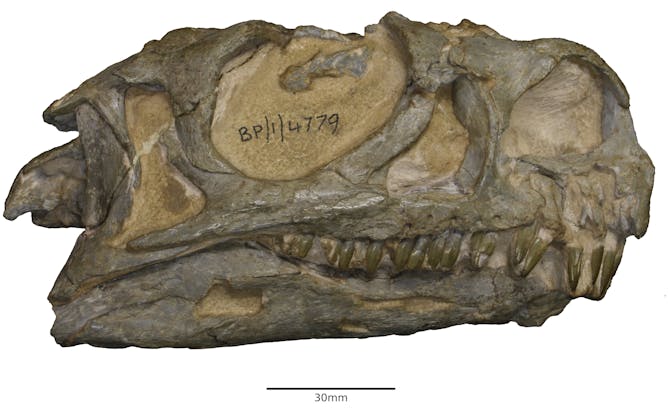|
For 40 years no one paid much attention to the dinosaur fossil nicknamed the “Grey Skull” as it lay in a South African university’s collection. But then a routine scan revealed something surprising about the skull: it belonged to an entirely new species and genus of dinosaur. Kimberley Chapelle explains how she made the extraordinary discovery.
As part of global commemorations to mark the 400th year anniversary of the grim history of slavery Ghana has declared 2019 “The Year of Return”. People with Ghanaian ancestry are being encouraged to visit the country, and even to take up residence. While this could boost the tourism industry there may be pitfalls warn Fredrick Dayour and Albert Kimbu.
On August 9 each year South Africa celebrates Women’s Day to mark the date in 1956 when
20 000 women marched to the seat of government in Pretoria to protest against apartheid laws. When democracy dawned in 1994, there was a great deal of hope that women’s rights would take centre stage. But, as a collection of articles published earlier show, that’s not what happened. Amanda Gouws explains how, after a strong start, hopes that a feminist agenda would be realised have largely been dashed. For her part, Alessandra Prioreschi lays out how the fear of being attacked has stopped women going out running and walking, while Juliana Claassens considers different ways of talking about sexual violence, drawing from modern and ancient stories. And finally Jo-Ansie van Wyk argues that one of the ways to spotlight women’s issues is to get more women
involved in foreign policy.
|

The “Grey Skull” specimen turned out to belong to an entirely new dinosaur species and genus.
Kimberley Chapelle
Kimberley E.J. Chapelle, University of the Witwatersrand
The more we know about the animals that lived during this time, the more we can start to comprehend how species react and recover after an extinction event.
|

The door of no return at the Cape Coast Castle.
Wikimedia Commons
Frederick Dayour, University for Development Studies; Albert N. Kimbu, University of Surrey
Ghana is banking on a much needed boost to its tourism sector from its call to Africans in the diaspora.
|
Women's Day in South Africa
|

Amanda Gouws, Stellenbosch University
Women were able to pursue an impressive feminist agenda as South Africa made its transition to democracy. But 25 years later there's not a lot left of the early victories.
| |

Alessandra Prioreschi, University of the Witwatersrand
It's not enough to simply promote healthy eating and exercise without considering the very real environmental and structural constraints present in South Africa.
|

Juliana Claassens, Stellenbosch University
Sexual violence is a global phenomenon that's been around for centuries.
| |

Jo-Ansie van Wyk, University of South Africa
South Africa has a long history of women at the helm of its foreign affairs ministry but this hasn't translated into a gender balanced foreign policy environment
|
|
|
From our international editions
|

Mark Howden, Australian National University
The world has no hope of reaching the goals of the Paris Agreement without seriously reducing emissions from agriculture, forestry and land clearing.
| |

Penny Pexman, University of Calgary; David Sidhu, University of Calgary
New research shows that there's much in a name: people will use the sounds in names to infer someone’s physical and personality traits.
|

Elena Neiterman, University of Waterloo; Christine Zaza, University of Waterloo
Some students who participated in a study of technology in the classroom believed instructors are at fault if students turn to technology when they are bored.
| |

Marco Aponte-Moreno, St Mary's College of California
For one, you can't break an economy that's already broken.
|
|
|